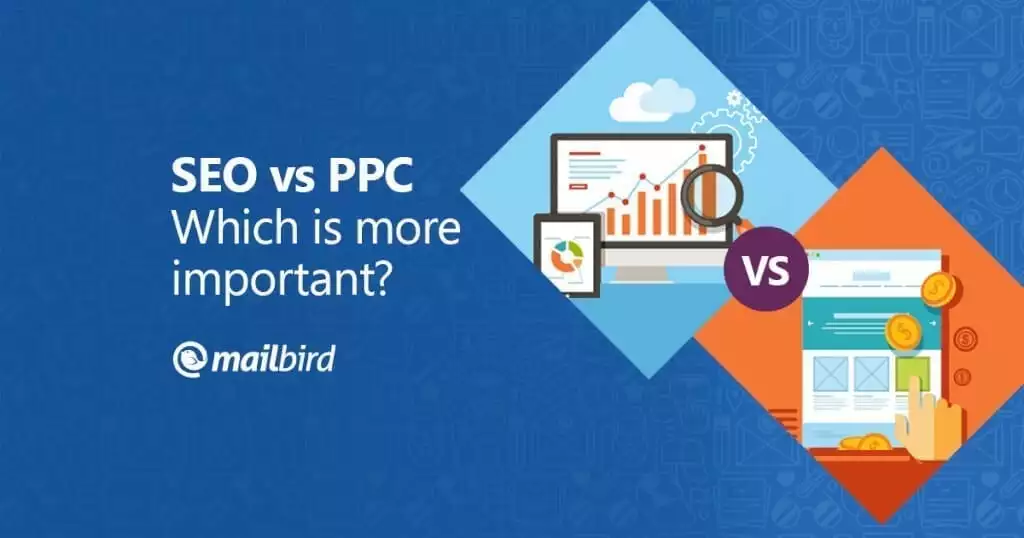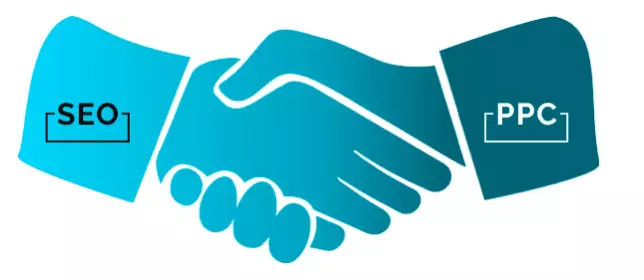SEO vs. PPC. WHICH IS MORE IMPORTANT?

Just like one of the life's unanswered questions "Did the egg come first or the chicken?" so is this a perpetual question in the minds of the digital marketers, "Which is more important - SEO or PPC?" It holds great interest for online marketers because it pits two significant sets of traffic strategies against each other. Both have instrumental roles to play in the promotion of a business and a website.
SEO and PPC - AN OVERVIEW
Both of these strategies affect the boosting of your business as well as your brand visibility. Therefore having a clear idea about these strategies is essential. SEO (Search Engine Optimisation) is about acquiring a higher rank or a higher organic search result on targeted keywords on the most essential and important search engine practices. PPC (Pay Per Click), on the other hand, is about paying for an advertising space which is targeted on specific and most searched keywords on the search results page. Both are essential methods of acquiring traffic for the website. I know it is as difficult as separating two peas in a pod. But to determine the importance of each, we need to analyze them at first.
SEO - ITS PROS AND CONS
The pros of organic search results are plenty. It is undoubtedly very difficult to get ranked based only on organic searches. However, it showcases the premium quality of a website if it ranks high in organic searches. Let's discuss the pros of organic search:
- Brand Visibility - Organic searches for targeted keywords drives traffic to your website. It showcases your business in front of potential customers and drives brand visibility and awareness. Also, it creates a positive branding effect since people will associate your brand with trusted search results and you will become the authoritative voice on relevant topics. For example, assignments4u.com is a trusted brand amongst students for availing quality assignments, and it holds the voice of authority in this field.
- Trust and credibility - If your site ranks high in organic results it drives trust and credibility o your audience. Being visible in organic search results gives that mark of importance to your website. Also having strong reviews on your website is bound to place the trust rate even higher.
- Return on Investment (ROI) - It can provide an improved return on investment over the traditional forms of paid media.
- Cost-effective - SEO is relatively cost-effective than other marketing strategies for creating brand awareness and increasing traffic to your website.
- CTR is improved - Organic search results get maximised visibility and leads to a higher percentage of click-through-rate than paid ads which are highly placed.
- Strategic advantage - It is a bittersweet criterion. Acquiring visibility in organic results is not easy. However, once you have claimed your position in higher rankings, it will not be possible for your competitors to buy their way in and will provide you the strategic advantage.
However like every coin has two sides, similarly SEO also has its cons:
- It is a prolonged process which develops gradually. If you are a fresher, you would need all the more patience to deal with the competition from already established brands.
- You also need to focus on developing proper SEO strategy, highly rich SEO content, and sometimes you may lack the resources to completely implement those strategies, optimise and acquire that type of content.
- SEO consultancy firms can help you with that, but the experienced ones would come with their own costs.
- Informational or pre-purchase research query can also contribute to organic traffic, and it is difficult to nurture that traffic and convert them into purchases. It may require tremendous efforts and may not yield the desired results always.
PPC - ITS PROS AND CONS
Paid search is different than that of an organic search. There arises an obvious question as to why would anyone avail of paid search when there is the organic one with all its pros (and a few of its cons). Let us have a look at some pros of PPC:
- Position on the page - Paid search is opted by people because it is strategically positioned above the fold where there is maximum visibility. The visitors are bound to see them even if they choose to scale past these ads.
- Brand visibility - You can choose to target yourself to the relevant audience. Even if they back out and conduct a brand search, that visibility will pay dividends on your strategy of marketing.
- Targeting - PPC provides a laser targeting opportunity to claim the full blast of opportunity. Ads are targeted to specific search keywords, geographical location, audiences, time, etc. It provided a more focused and pointed targeting, unlike organic traffic which is more broad, scattered and not very specific.
- Speedy results - PPC has speedy results. Unlike organic results which take a lot of time to acquire visible results, PPC is for direct instant marketing. It is an agile approach to marketing.
- Marketing intelligence - While in organic search, the keyword data is hidden, paid search is free from such restrictions. We can determine the analytics of conversion from every keyword. Results from other campaigning tricks such as split testing, call-to-action-buttons, etc. can also be determined, and this information can be used further in other marketing endeavors.
- Stability - Unlike the turbulence in organic search results, Adwords is much more stable. The changes here tend to have a lesser impact and re far more easily manageable.
Then again PPC is not without its flaws:
- There is a reason why it is called paid search. It requires constant investment. The moment you stop paying the ads become no longer visible, and the leads dry up. Unlike PPC, organic traffic is way more robust.
- It is not always cost-effective. There is a constant presence of bidding wars which can drive your costs up.
- The style of PPC campaigns is also easier to copy. Your competitors can imitate your marketing funnel quite easily.
IS SEO BETTER THAN PPC?
If we scratch the surface, SEO seems to be the clear winner of this question. It is because SEO tends to bring better traffic and trusted leads than PPC. A website appearing on natural search is bound to have more credibility than that of a paid one. There is an increased trust rate on SEO optimised brands than on paid ads. However, SEO is not without its flaws. The question of whether you need to use SEO or PPC mostly depends upon the monthly budget for marketing as well as your goals as a company.
Let us look at two scenarios:
- A local business with little competition and less requirement of leads is likely to develop good visibility in organic searches with some skilled SEO. Even if it employs PPC, it will not require a huge investment.
- However, a new e-commerce website struggling to establish itself amidst the likes of Amazon, eBay, etc. is likely to struggle more in acquiring organic search results. It will require PPC for obtaining brand visibility at least during the initial stages of establishment.
Thus whether to employ SEO or PPC would entirely depend upon your marketing goals as well as your budget.
SEO AND PPC CO-EXISTENCE

Employing both strategies as a part of your marketing is an ideal option, and it is bound to have better results. Working together and complementing each other, both will have the capability to secure better results. The benefits are:
- Conversion data and keyword from PPC can be incorporated in the organic search.
- The total traffic volume can be increased by targeting the number of clicks on both paid and organic high-performing keywords.
- A/B testing results can be fed into the organic searches.
- Test the keyword strategy in PPC before incorporating them into long-term organic strategies.
- An increased brand visibility and a boosted confidence in the brand due to both organic and paid visibility.
Therefore, while PPC is the best way to kick-start your business, SEO always brings to you long-term results. Choosing between both can be confusing enough, but you need to have a clear idea about the position of the market as well as your marketing goals. Employing both the tactics with a sharp vision would help secure better results for your company.
About the Author:
